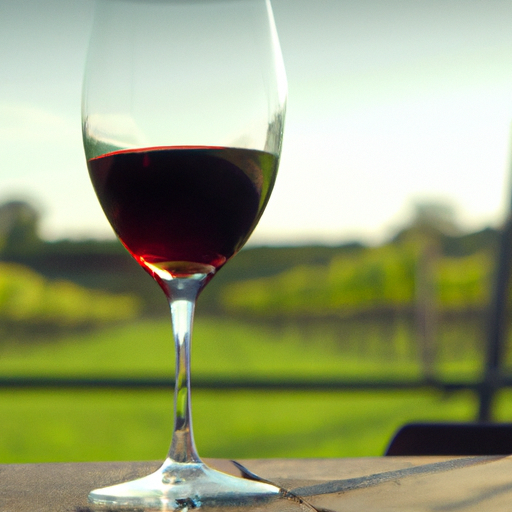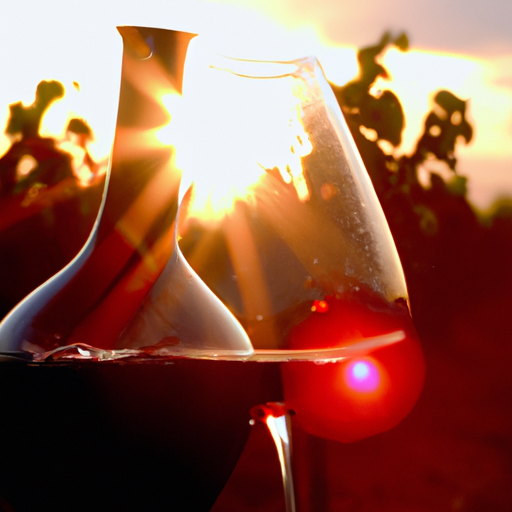Exploring the Future of Wine: Innovations and Trends in In Vino Veritas C
In vino veritas, a Latin phrase meaning “in wine, there is truth,” has been a guiding principle for wine lovers and connoisseurs for centuries. As we look to the future, this phrase takes on a new meaning, reflecting the innovative trends and technological advancements shaping the wine industry. Welcome to the future of wine, where tradition meets innovation in a glass of In Vino Veritas C.
The wine industry, like many others, is not immune to the transformative power of technology. Winemakers are increasingly turning to technology to improve the quality of their products, streamline production processes, and enhance the overall wine-drinking experience. One such innovation is precision viticulture. This involves using satellite imaging and GPS technology to monitor vine health, soil conditions, and weather patterns. The data collected allows winemakers to make informed decisions about when to harvest and how to manage their vineyards, resulting in better quality wines.
In addition to technological advancements, sustainability is a major trend shaping the future of wine. As consumers become more environmentally conscious, wineries are responding by adopting sustainable practices. This includes everything from organic farming and water conservation to renewable energy use and waste reduction. Some wineries are even going a step further by becoming certified organic or biodynamic, a holistic approach to farming that views the vineyard as a self-sustaining ecosystem.
The future of wine is not just about what’s in the bottle, but also how it’s packaged. Traditional glass bottles are being challenged by alternative packaging options like cans, boxes, and even kegs. These alternatives are not only more environmentally friendly, but they also offer convenience and portability, appealing to a younger generation of wine drinkers.
The wine-drinking experience itself is also evolving. Virtual tastings have become popular, especially during the pandemic, allowing people to enjoy wine from the comfort of their homes while learning from experts. Augmented reality wine labels are another innovation enhancing the wine-drinking experience. By scanning the label with a smartphone, consumers can access a wealth of information about the wine, including tasting notes, food pairing suggestions, and even the story of the winery.
The rise of e-commerce is another trend shaping the future of wine. Online wine sales have been growing steadily over the past few years, and this trend is expected to continue. Buying wine online offers convenience and a wider selection than traditional brick-and-mortar stores. It also allows consumers to discover new wines and learn about them through detailed product descriptions and customer reviews.
In the future, we can also expect to see more personalized wines. Advances in technology are making it possible for wineries to create custom blends based on individual preferences. Imagine having a wine created just for you, with the perfect balance of sweetness, acidity, tannins, and alcohol content.
In conclusion, the future of wine is exciting and full of possibilities. From technological advancements and sustainable practices to alternative packaging and personalized wines, the industry is evolving to meet the changing needs and preferences of consumers. So, as we raise a glass to the future, we can be sure that in vino veritas will continue to ring true. In wine, there is indeed truth, and in the future, there is a world of innovation and exciting trends to explore.
In Vino Veritas C: The Evolution of Wine Production and Consumption

In vino veritas, a Latin phrase meaning “in wine, there is truth,” has been a popular saying for centuries. It suggests that people reveal their true feelings and thoughts under the influence of wine. But today, we’re not here to discuss the philosophical implications of this phrase. Instead, we’re going to delve into the fascinating world of wine production and consumption, and how it’s evolving to meet the demands of the future.
Wine production has a rich history dating back thousands of years, with the earliest evidence of winemaking found in Georgia, dating back to 6000 BC. Over the centuries, the process of winemaking has been refined and perfected, with each region developing its unique methods and styles. However, the basic process remains the same: growing grapes, harvesting them, fermenting the juice, and then aging it until it’s ready to be enjoyed.
But as we move further into the 21st century, the wine industry is facing new challenges and opportunities. Climate change, for instance, is having a significant impact on vineyards worldwide. Rising temperatures and unpredictable weather patterns are forcing winemakers to adapt and innovate. Some are experimenting with different grape varieties that can better withstand these changes, while others are exploring new growing regions.
Technology is also playing a crucial role in the evolution of wine production. From drones monitoring vineyard health to AI-powered systems predicting the best time to harvest, technology is helping winemakers optimize their processes and produce better quality wines. Even in the cellar, technology is making a difference. Innovations like precision fermentation devices allow winemakers to control the fermentation process with unprecedented accuracy, resulting in wines with more consistent flavors and aromas.
But it’s not just the production side of things that’s changing; the way we consume wine is evolving too. The rise of online wine sales and wine subscription services has made it easier than ever for consumers to explore and discover new wines. These platforms offer personalized recommendations based on individual taste preferences, making the world of wine more accessible to a broader audience.
Moreover, the trend towards sustainable and organic wines is gaining momentum. Consumers are becoming more conscious of the environmental impact of their choices and are seeking out wines that are produced in an eco-friendly manner. This shift in consumer behavior is encouraging more wineries to adopt sustainable practices, from organic farming methods to renewable energy sources.
The future of wine is also likely to be influenced by scientific advancements. For instance, synthetic wines, created in a lab without the need for grapes or traditional winemaking processes, are already a reality. While they may not replace traditional wines anytime soon, they offer an intriguing glimpse into what the future might hold.
In conclusion, the world of wine is in a state of flux, shaped by the forces of climate change, technology, changing consumer behaviors, and scientific advancements. But despite these changes, the essence of wine – its ability to bring people together, to enhance a meal, to celebrate life’s moments – remains the same. In vino veritas, indeed. As we raise our glasses to the future, we can look forward to a world of wine that’s more diverse, accessible, and sustainable than ever before.
The Impact of Technology on the Wine Industry: A Look at In Vino Veritas C
In the world of wine, the Latin phrase “In Vino Veritas” holds a special place. Translated as “in wine, truth,” it encapsulates the belief that wine can reveal the true nature of a person. But in the context of the future of the wine industry, “In Vino Veritas C” takes on a new meaning. It represents the intersection of tradition and technology, where the age-old art of winemaking meets the cutting-edge advancements of the 21st century.
The wine industry, like many others, is being transformed by technology. From vineyard to glass, every step of the winemaking process is being reimagined and redefined by innovative solutions. The result? A revolution in the way we produce, distribute, and consume wine.
Let’s start in the vineyard. Here, technology is being used to monitor and manage the health of the vines. Drones equipped with multispectral imaging cameras fly over the vineyards, capturing data about the health of the vines, the moisture levels in the soil, and the presence of pests or diseases. This information is then analyzed using artificial intelligence (AI) algorithms, allowing winemakers to make informed decisions about when to water, fertilize, or harvest their grapes.
But the impact of technology doesn’t stop at the vineyard’s edge. In the winery, advanced machinery and software are being used to control the fermentation process, ensuring that each batch of wine is produced to the highest possible standard. Sensors monitor temperature, humidity, and other environmental factors, while AI algorithms analyze the data to optimize the fermentation process. This level of control allows winemakers to consistently produce high-quality wines, regardless of variations in the weather or the quality of the grapes.
Technology is also transforming the way wine is distributed and sold. E-commerce platforms and mobile apps are making it easier than ever for consumers to discover, purchase, and enjoy wines from around the world. Virtual reality (VR) and augmented reality (AR) technologies are being used to create immersive wine tasting experiences, allowing consumers to explore vineyards and wineries from the comfort of their own homes.
And let’s not forget about the role of technology in enhancing our enjoyment of wine. Smart wine decanters and aerators use ultrasonic waves to speed up the aeration process, unlocking the flavors and aromas of the wine in a matter of minutes rather than hours. Digital sommelier apps use AI to provide personalized wine recommendations based on your taste preferences, food pairings, and even your mood.
In Vino Veritas C, then, represents a future where technology enhances, rather than replaces, the traditional art of winemaking. It’s a future where drones and AI algorithms work alongside human winemakers, where e-commerce platforms and VR experiences bring the world of wine to our fingertips, and where smart decanters and digital sommeliers help us to enjoy wine in new and exciting ways.
But perhaps most importantly, In Vino Veritas C represents a future where the truth of wine – its ability to bring people together, to spark conversation, to enhance a meal, to celebrate life’s special moments – is not lost but enhanced by technology. Because in the end, it’s not about the drones or the algorithms or the apps. It’s about the wine. And in wine, as the saying goes, there is truth.
